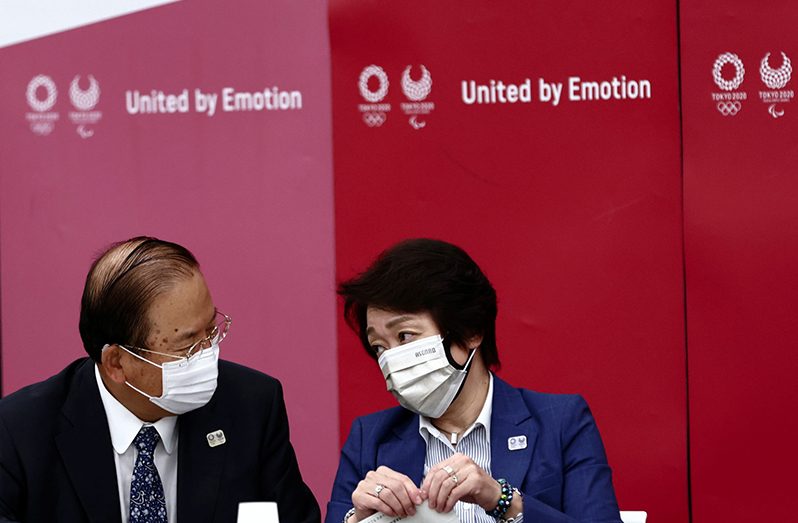TOKYO, Japan – (Reuters): Japan’s 2020 Olympics committee may seek more vaccine donations to make the rescheduled Games as safe as possible, the Tokyo 2020 executive director said after a board meeting yesterday, emphasising that there had been no talk of further delays.
The Olympics have already been postponed for a year amid global concerns about how organisers can keep volunteers, athletes, officials and the Japanese public safe when they begin on July 23 after a fourth wave of infections. Tokyo 2020 CEO, Toshiro Muto, flatly denied that there was talk of cancellation or postponement at the executive board meeting.
“There was no talk about it at all,” he told reporters.
Instead, he spoke of the possibility of looking for more vaccines, adding that “there is an ongoing discussion about whether we should vaccinate Olympic-related personnel more broadly.”
Most people in Japan are opposed to holding the games, polls have shown; and a top virologist and adviser to the Japanese government was quoted yesterday as saying it was impossible to have games without risk.
Tohoku University professor Hitoshi Oshitani was an architect of Japan’s ‘Three Cs’ approach to the pandemic, which advises avoiding closed spaces, crowds and close contact.
“It is 100 percent impossible to have an Olympic Games without risk … of spreading the infection in Japan and also in other countries after the Games,” the London Times quoted Oshitani as saying. “There are several countries that do not have many cases and others that do not have variants. We must not make the Olympic Games (an occasion) to spread the virus to these countries,” he added, noting that most countries lack vaccines.
However, a former Olympian turned public health expert said she believed the Games can be held with an acceptable level of risk.
“There will be cases, but having a case or a couple of cases does not mean it was a failure,” Tara Kirk Sell, a professor at the Johns Hopkins Bloomberg School of Public Health, told Reuters yesterday. Event organisers’ playbooks detailing test regimes and movement restrictions for athletes and other visitors “describe a good strategy” to minimise contagion, Sell added.
Praying for safe games
Media arriving from abroad to cover the Games will be closely monitored to ensure they do not leave pre-registered areas such as hotels and sports venues, said Tokyo 2020 president Seiko Hashimoto. He also said that staff related to the Japan Olympics were expected to start getting vaccinated in mid-June.
“… We are still in a very difficult situation, but we have seen a gradual decrease in infections in Tokyo, and I pray that the pandemic is brought under control as soon as possible,” Hashimoto said at the start of the Tokyo 2020 board meeting. Japan has been spared the explosive outbreaks seen elsewhere, but has recorded more than 760 000 cases and more than 13 600 deaths. Tokyo and other regions are under a state of emergency as the nation battles a fourth wave that is depleting hospitals.
The government’s top medical adviser, Shigeru Omi, said last week that medical experts planned a statement on the Games for June 20, when the state of emergency will be lifted.
A union on the northern island of Hokkaido, where the Olympic marathon will be held, petitioned its governor on Monday to cancel the Games, media said.
Kaori Yamaguchi, a board member of the Japanese Olympic Committee, a bronze medallist in judo at the 1988 Games, said on Friday that Japan had been “cornered” to go ahead with the Games. The public in Japan remains divided over the holding of the Games, although opposition appears to be waning somewhat. A poll by broadcaster TBS this week showed that 55% wanted games postponed or cancelled, 10 points less than last month. Sell, a silver medallist swimmer at the 2004 Athens Games, said the acceleration of vaccines and the decline in the number of cases in Japan were positive signs that the Olympics can go ahead. “These Games are very much a symbol of the entire world emerging from this terrible global pandemic,” he said.
“If we wanted to be as safe as possible, we would never leave our house.”



.jpg)








